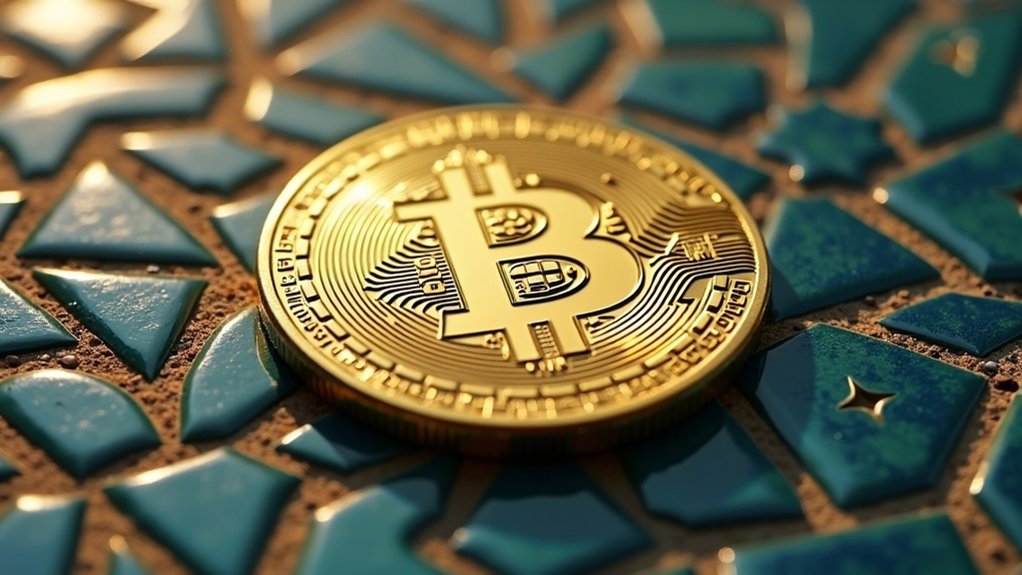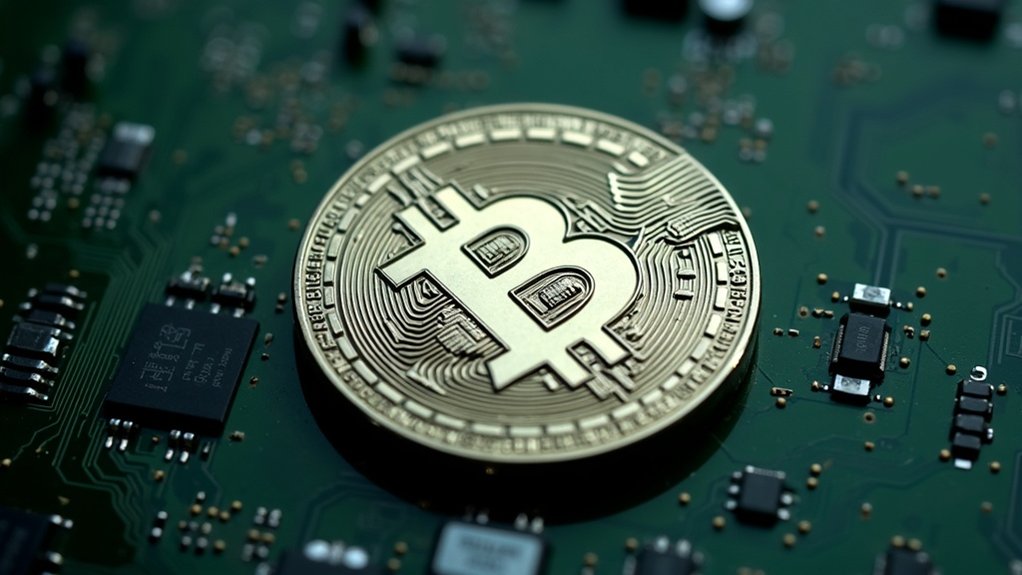Islamic scholars are split on cryptocurrency’s halal status. No consensus exists. Some, like Egypt’s Grand Mufti, condemn it as haram due to speculation and volatility. Others, including Mufti Abu-Bakar, see blockchain’s transparency and interest-free nature as Shariah-compliant. Regional differences complicate matters—Malaysia’s open, Indonesia’s opposed. Projects like Islamic Coin aim to bridge the gap. The debate isn’t about technology but intention. The deeper principles reveal why this divide isn’t going away soon.
When billions of dollars flow through digital networks, Islamic scholars take notice. They’re not exactly in agreement, though. The Grand Mufti of Egypt thinks crypto is haram – forbidden, end of story. His reasoning? Too speculative, not “real” money.
But hang on. Other respected voices like Mufti Abu-Bakar and experts at HSBC Amanah see it differently. They argue cryptocurrencies can fit perfectly well within Shariah principles. The devil, as they say, is in the details.
While some scholars condemn crypto outright, others see divine compatibility hiding in the blockchain’s technical details.
Let’s get real about what matters in Islamic finance. No riba (interest), no excessive uncertainty, and transactions need to have actual value. Cryptocurrency ticks some important boxes here. No centralized banks charging interest? Check. Blockchain transparency? Check. With a limited supply, cryptocurrencies like Bitcoin can actually help mitigate inflation risk, which aligns with Islamic economic principles.
But that wild price volatility? That’s where things get dicey. The scholars who approve crypto aren’t giving a blank check. They’ve got conditions. Transactions must happen immediately – none of that “I’ll pay you tomorrow” business. The crypto can’t fund gambling or other haram activities. Some traders use crypto derivatives to hedge against market volatility, which adds another layer of complexity to Islamic compliance.
And speculation? Keep it minimal, please. Islamic finance hates uncertainty almost as much as it hates interest. Different regions, different rulings.
Malaysia’s Islamic financial institutions seem more open to crypto, creating compliance frameworks that make certain cryptocurrencies acceptable. Indonesia? Not so much. Their National Ulema Council dropped a fatwa in 2021 basically saying “nope, it’s gambling.”
Some Muslims aren’t waiting for universal agreement. Projects like Islamic Coin are attempting to create digital assets specifically designed to comply with Shariah law. Smart move. These innovative solutions incorporate Sharia boards to ensure adherence to Islamic principles while embracing modern technology.
The fundamental question isn’t really about the technology. Blockchain itself is neutral – like a knife that can chop vegetables or… something else. What matters is how people use it. For Muslims traversing this digital financial frontier, intention matters. A lot.
And that’s something no fatwa can fully regulate.
Frequently Asked Questions
Can Muslims Mine Cryptocurrency?
Muslims can mine cryptocurrency, but it’s complicated. Many scholars consider mining halal when it provides legitimate transaction verification services.
But there’s debate. The environmental impact? Problematic. Financial uncertainty? Concerning.
Using renewable energy helps. Avoiding interest-based equipment financing is essential.
Mining pools are okay if transparent and fair. Some scholars love it, others hate it.
Bottom line: it’s permitted if done ethically, without gambling elements, and with environmental consciousness.
No easy answers here.
Does Islamic Finance Permit NFTS?
NFTs exist in a gray area in Islamic finance.
They’re potentially permissible if they meet strict criteria: represent halal content, provide genuine utility, and avoid excessive speculation.
The problems? Volatile cryptocurrency payments raise gharar concerns.
Ownership rights are often murky.
Perpetual royalty mechanisms might conflict with full ownership transfer principles.
And those wild price swings? Total maysir territory.
Some scholars approve NFTs that follow standard Shariah trade rules, but plenty remain skeptical.
The debate continues.
How Do Islamic Scholars View Defi Platforms?
Islamic scholars largely view DeFi platforms with skepticism.
Traditional DeFi? Mostly haram due to riba (interest) and gharar (excessive uncertainty). No surprise there.
Some scholars acknowledge blockchain’s potential but demand strict vetting against Islamic principles.
The landscape is changing though. Islamic-focused DeFi innovations are emerging, using profit-sharing contracts instead of interest mechanisms.
These platforms are gaining traction, with some even securing Sharia certifications.
Still, challenges remain in verifying full compliance across complex protocols.
Are Stablecoins More Shariah-Compliant Than Bitcoin?
Stablecoins generally align better with Shariah principles than Bitcoin. They reduce gharar (excessive uncertainty) by maintaining stable value—a big deal in Islamic finance.
Asset-backed stablecoins, especially those with tangible reserves like gold, score points for having intrinsic value. Bitcoin’s wild price swings? Not great for Shariah compliance.
But here’s the catch: stablecoins generating interest (riba) are problematic. The verdict depends on specifics. Full reserve transparency and proper Shariah certification make all the difference.
What Islamic Alternatives Exist to Interest-Bearing Crypto Lending?
Islamic finance offers several alternatives to interest-bearing crypto lending.
Murabaha contracts allow cost-plus financing without interest – buy an asset, sell it with markup. Simple.
Ijarah provides leasing options for digital assets.
Profit-sharing models like Mudarabah and Musharakah distribute actual returns rather than guaranteed interest.
Smart contracts make these arrangements enforceable.
Asset-backed tokens tied to real-world commodities provide stability without riba.
These alternatives focus on risk-sharing and asset-backing.
No interest, no problem.









